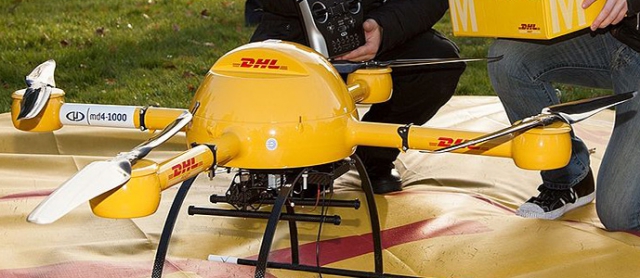Drone deliveries, drone inspections and even autonomous flying taxis are near term realities, and to make these services safe and efficient ICAO has begun the consultative work needed to establish low-altitude traffic management guidance for domestic unmanned aircraft systems (UAS).
Recognizing that an agreed global approach will greatly assist businesses and others in launching their UAS services with suitable levels of investment confidence and operational safety, ICAO is now convening its second DRONE ENABLE event for 13-14 September in Chengdu, China. Its focus will be on exploring new solutions with experts and innovators from industry, academia and other areas to help globally coordinate the development of UAS activities, and safely integrate UAS traffic management systems and existing conventional air traffic management systems.
In preparation for the Chengdu event, ICAO has also issued a second request for information (RFI) to expand on the guidance material which was initiated after its first DRONE ENABLE in 2017. Interested parties can contribute to the 2018 ICAO RFI via the UN aviation agency’s Unmanned Aviation website.
“Many new proposals and innovations are emerging on a daily basis regarding unmanned aircraft and their operations at low altitudes,” commented ICAO’s Council President Dr. Olumuyiwa Benard Aliu. “ICAO is the natural agency to bring together the best and brightest from government and industry to define how these aircraft can be safely integrated into modern airspace, and in a way that optimizes their benefits globally for the wide range of public and private sector operators.”
In October 2016, during ICAO’s 39th Assembly, world governments requested that it develop a practical regulatory framework for national UAS activities, in addition to the standards it was already developing for international operations.
“Multiple States and regional groups have activities underway to establish a UAS airspace management tool for lower altitudes, and ICAO’s work through this RFI process will help to facilitate harmonized solutions which are safe, secure, sustainable, and most importantly globally aligned,” noted ICAO Secretary General Dr. Fang Liu.
“Our over-riding goal at ICAO is to better define the issues involved, whether technical, operational or legal, and also to ensure safety continues to remain our highest priority.”
About ICAO
A specialized agency of the United Nations, ICAO was created in 1944 to promote the safe and orderly development of international civil aviation throughout the world. It sets standards and regulations necessary for aviation safety, security, efficiency, capacity and environmental protection, amongst many other priorities. The Organization serves as the forum for cooperation in all fields of civil aviation among its 192 Member States.
Source: Press Release

